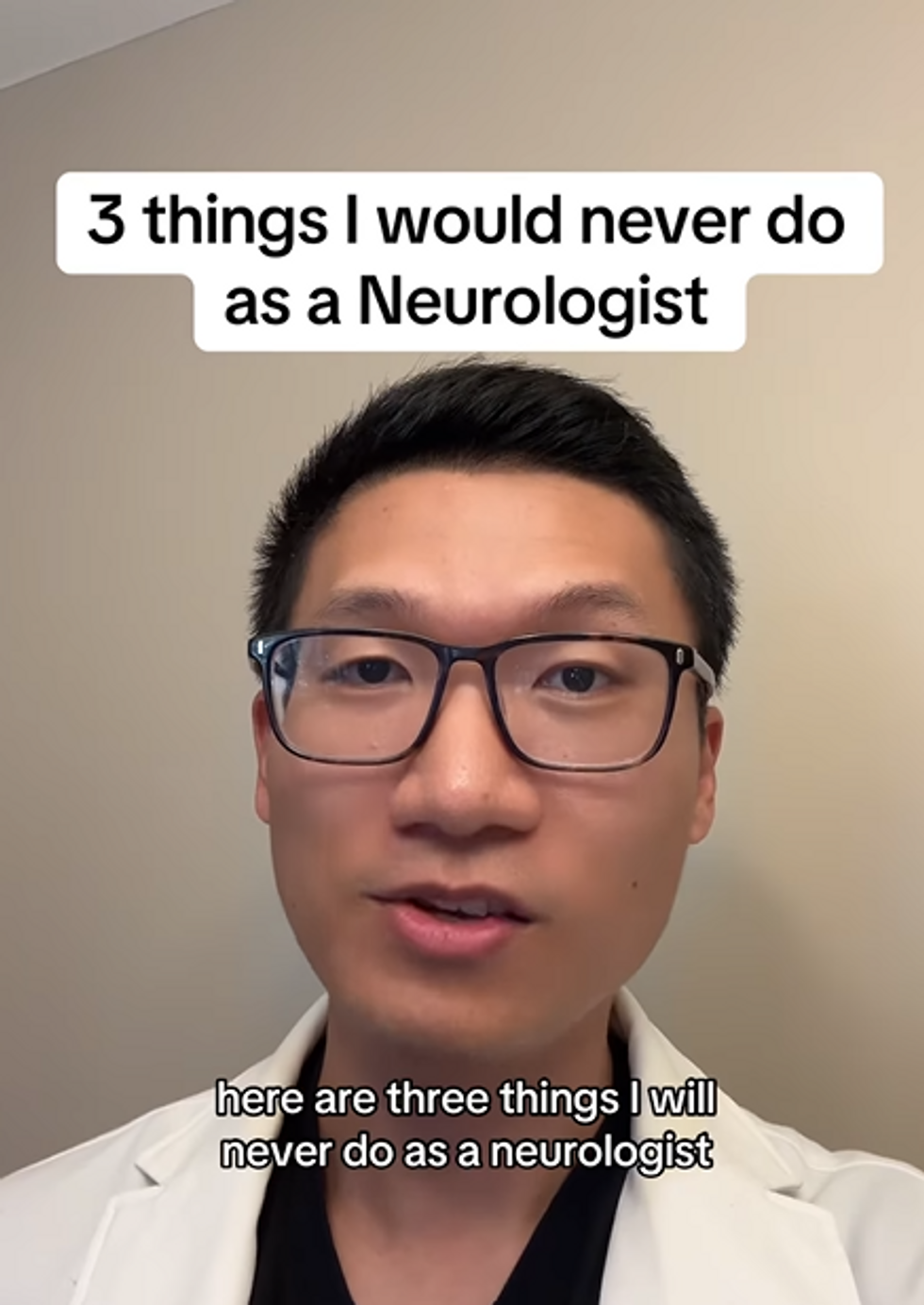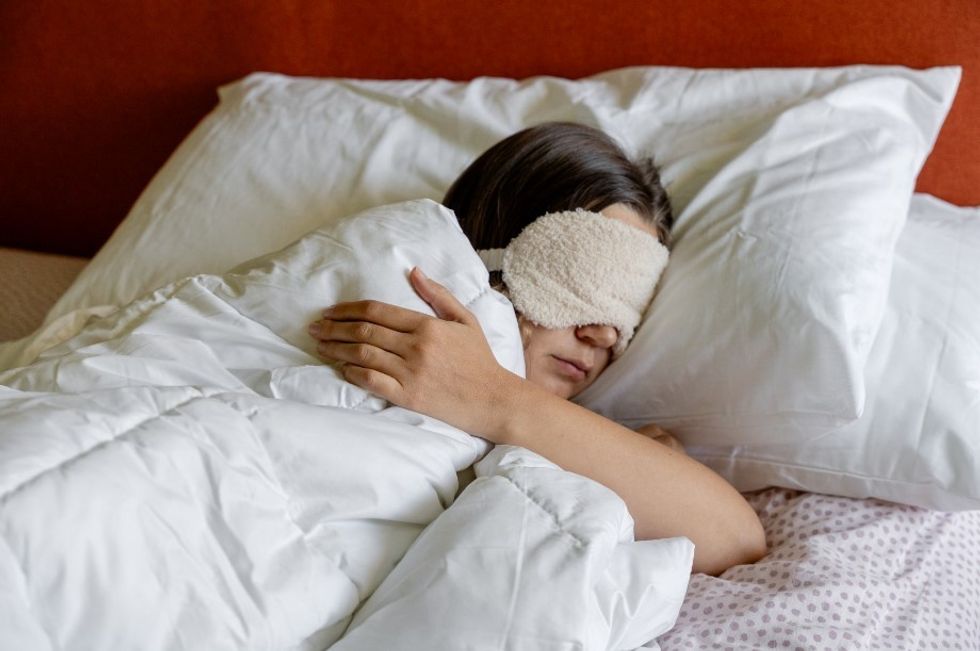A US-based neurologist has revealed how to tell if a headache is harmless or a potential brain tumor.
In an Instagram video, Dr Baibing Chen pointed to two symptoms to be aware of.
He said: “If a headache suddenly feels different, such as thunderclap headache, or it’s lasting longer [than usual] it could be of something serious like a bleed or tumour or aneurysm.”
According to the NHS, thunderclap headaches are sudden severe pains that feel similar to being hit in the head.

Dr Baibing Chen took to Instagram to warn of brain tumor symptoms
This debilitating headache can be a sign of a burst blood vessel in the brain which can result in a coma, a lifelong disability or death.
Thunderclap headaches are considered a medical emergency and the NHS urges people experiencing them to go to A&E or call 999.
A headache that is more frequent or constant can also be a sign of a brain tumor, and medical professionals advise visiting a GP.
Dr Chen, who regularly posts videos answering questions about his profession, also offered his followers tips on preventing neurological issues, including “locked in syndrome.”
This condition causes the paralysis of voluntary muscles except those that control eye movements. It can happen when the brainstem becomes severely damaged.
Those suffering from “locked in syndrome” are fully aware and have the same cognitive abilities but they cannot speak or move.
Dr Chen advises people to avoid getting neck manipulations – a technique often carried out by chrisopractors – which carry a risk of developing the life-altering disease.
“Forceful neck adjustments can carry a rare but serious risk, and that is vertebral artery dissection,” he said.

The NHS advises adults to get at least seven hours of sleep per night
GETTY IMAGES
He also told his followers to make sure they were getting enough good quality sleep.
He explained that chronic sleep deprivation can increase one’s risk of neurological issues such as dementia.
He said: “So even with a busy schedule at the hospital and coming home to two little kids I try my best to get quality sleep and get at least six hours when I can.”
The NHS advises adults to get between seven and nine hours of quality sleep every night.